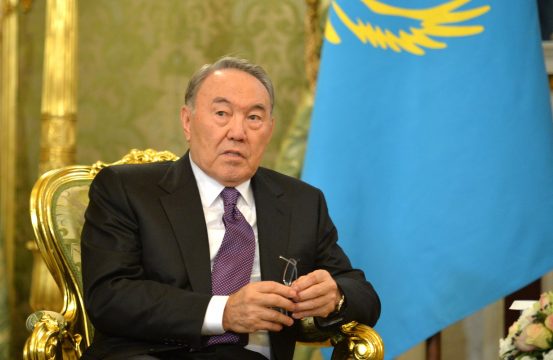
Changes in the economy ministry and presidential administration forced by arrests at the top.
Kazakhstan has named its third minister of economy in less than one year. This time, however, the reshuffle was not caused by shortcomings on the job, but by alleged corruption. Criminal investigation reached even the presidential administration, as its deputy head and a few other employees were arrested.
Kuandyk Bishimbayev served as economy minister from May to late December 2016, when he was abruptly dismissed. A couple of weeks later he was first detained and then arrested on corruption charges. He is accused of having accepted bribes between 2013 and 2015 while heading the Baiterek Holding, a state-owned conglomerate in charge of several other companies that oversee or carry out government tenders. The charges could land him a 15-year sentence.
Bishimbayev’s position had become increasingly unstable after the arrest of Bakhyt Zhaksybayev, the former head of Baiterek Holding, on November 30 last year. He was accused, along with others, of having taken bribes of around $1 million in relation to housing projects around the country sponsored through the Nurly Zhol program.
The holding now claims to have eliminated the opportunity for corruption. “Now developers will have several commissions to go through to get a permission and we will also invite external experts to monitor these commissions,” Baiterek’s leadership assured.
Importantly, Bishimbayev, 36, was a member of the young elite that was supposed to breathe new life into the ageing system built by President Nursultan Nazarbayev. Before him, the job was held for almost four years by another emerging figure, Yerbolat Dossayev, who is, incidentally, the new head of Baiterek Holding.
Dossayev resigned from his post after proposed amendments to the country’s land code caused an unusual outbreak of popular protests across Kazakhstan. In an effort to shake up the establishment, Nazarbayev accepted the resignation and appointed Bishimbayev, the young prodigy that would have improved communication between the center and the people. He was of the Bolashak generation, a product of independent Kazakhstan, and the path ahead of him was undoubtedly poised to be bright.
Bishimbayev’s substitute, 38-year-old Timur Suleimenov, is another Bolashak graduate, has a background in accounting and the oil and gas sector, and was named the Eurasian Economic Commission’s minister of finance in 2012, as the organisation prepared the transition of the Customs Union between Belarus, Russia and Kazakhstan into today’s Eurasian Economic Union.
The whirlwind that got Bishimbayev in a muddle also involved other important figures in high positions. Baglan Mailbayev, who had served as deputy head of the presidential administration for six years, was also arrested and charged with embezzling 1.3 billion tenge (around $4 million) between 2014 and 2016, according to preliminary reports.
Another high-profile criminal case in early January had featured the head of the country’s pension fund, another public servant, also accused of embezzlement. This does not bode well for the proclaimed reform of public offices that Nazarbayev wants to realize.
The timing of these arrests is also unusual. It generally took a few moves on the chessboard for the leadership to sideline the “rotten apple” before corruption charges emerged. The case of former PM Serik Akhmetov is a paragon in this regard. Akhmetov was sacked from the PM post in 2014 and appointed defense minister, a position he voluntarily left after just six months in office. One month later, he was arrested for embezzlement. He was sentenced in December 2015 to 10 years in prison, later reduced to eight.
Now, it seems that the long, twisty process of sidelining a public servant before the justice system presses corruption charges has been shortened. Mailbayev was sacked from the presidential administration just one day before his arrest.
As usual, when the government’s foundations shake, Nazarbayev turns to his most loyal officials. In a move that looks like a promotion, Nazarbayev brought back Marat Tazhin from his post of ambassador to Moscow, to the presidential administration. The appointment of Tazhin, a veteran of the Akorda, could represent a way for Nazarbayev to round up his closest bureaucrats in preparation for a transition of powers.
Saldos - Entrega gratuita


